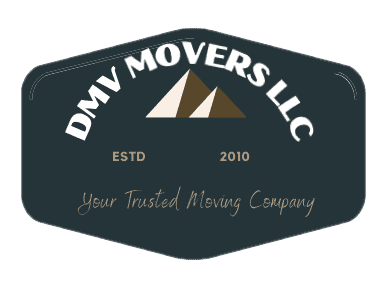Any move is stressful, whether it’s across town or across the country. In addition to making important decisions like where to live, you’ll need to pack up your belongings and move them to the new house.
You may not only become mentally fatigued sorting through your possessions, but you might also become physically exhausted packing everything up and moving bulky objects and appliances. Whether you are moving locally or a long distance, you might benefit from hiring professional moving assistance. Now, you wish to hire local household movers near me and continue searching.
In this article, we are going to discuss how to find the best local movers and how to contact and hire them for your move. We also find out before booking any relocation team what to consider. Well, without delay, let’s see below.
How To Find Local Moving Companies Near Me?
40 million Americans are on the shift this year, so if you’re one of them, then you will definitely have a lot to do. The stress of relocating (while managing the rest of your life) may overwhelm you, regardless of whether you are moving for a promotion or a better school for your kids.
In your area, you’ll find a variety of reputable local moving companies to make the process of moving less stressful and more seamless. If you’re asking yourself, “Who are the best movers near me?” As you drum the keys on your keyboard, here are a few tips.
Make Rockville Moving Your First Choice :
A network of Local Moving Companies in Rockville movers can handle both residential moves and commercial moves as well. To be sure, moving companies follow local licensing and insurance regulations, and our team has already done the work of vetting them.
We will help you find out multiple relocation quotes that meet the near me criteria if you provide just one quote. The moving estimates are specific to your location.
Consult Your Friends And Family :
It never hurts to ask friends and family who have recently moved for recommendations from service providers, even though search engines might be your first stop these days.
Let them tell you about their experience with movers. The DMV moving partners can provide them with moving estimates, allowing them to decide which company to hire.
Compare Flat Rate And Hourly Rates :
You might be able to save money by determining whether a flat rate is more practical. Regardless of the length of the move, a price is determined by the amount being moved, how many crews will be required, and whether a truck is required or an hourly rate.
When movers must travel a distance or deal with traffic, hourly rates tend to be best. In contrast, flat rates are best suited to local moves that will only take a few hours.
Licenses And Insurance Should Be Double-Checked :
Some states allow moving companies to perform services without registering and obtaining (and maintaining) a license. As a requirement of licensing, there is also an obligation to be insured.
Providing protection to consumers is the aim of this regulation – only movers who have taken the time to comply with state laws are worth your time. Check the database of your state to ensure the mover you choose is licensed and insured, and don’t be unwilling to ask to see proof of their insurance.
Check The AMSA Registry :

Moving and storage companies are represented by the American Moving & Storage Association (AMSA). Find a mover who is an AMSA member for peace of mind and it sets the standards for the moving industry.
AMSA offers an alphabetized list of its members, which you can cross-reference and search to locate the nearest moving company. Although you can’t type a moving company near me in its search box, you can reference the list to find the nearest mover.
In Doubt, Check The BBB :
Since the early 1950s, the Better Business Bureau has existed. Look up the moving company in their database before signing on the dotted line.
View a company’s BBB rating here as well as read reviews from real customers about local moving companies.
Why Hire A Professional Local Moving Company?
A local mover is specialized in moving an apartment or house within the same town or metropolitan area. A few hours is usually what it takes these firms to relocate a house using labor, a truck, and basic relocation supplies. A local move is quite different from a long distance.
Consider the following reasons for using a licensed and professional moving company:
You’ll Have Less Work to Do :
You can focus more time and energy on other aspects of your move when you hire movers to do most of the work. Dedicated moving companies provide a range of services to help your move go smoothly.
The movers in our network offer everything you need for a successful move, from helping you pack the moving boxes, to disassembling furniture, to providing you with temporary storage space. The movers will also load the moving truck and move heavy furniture on moving day, which is labor intensive. Let someone else handle it for you!
They Have Professional Skills :
Most likely, you have family and friends who will assist you with the move. How do they maneuver a couch over a tight doorway, or how do they pack your china? Professional movers have the training and experience to handle any move.
Throughout the move, they ensure your most fragile and awkward belongings will be transported safely and efficiently.
They Are Covered By Insurance :
It will cost you money to replace your TV if you drop it during your move. Moving companies, on the other hand, have insurance to pay for damage that occurs during moving.
Make sure you know what your options are before moving. If you’re concerned about particularly valuable items, you might want to purchase additional coverage.
These Guys Move Fast :
The moving process is expedited by professional movers, which is extremely helpful when moving at the last minute. The more people who help, the more knowledgeable they are. It takes only a few hours to accomplish many small moves.
Moving Companies Have Equipment & Tools :
Would you be able to fit all your belongings in a truck? How about large appliances and furniture? To secure your items during transportation, why not consider moving blankets and tie-down straps?
Despite the fact that these tools and necessary equipment are included in your moving company’s quote, they will still handle your belongings safely. Rather than renting a truck, moving blankets, a dolly, and spending that money on them, hire movers!
What Types Of Short Distance Moving Services Are Available?
Our professional household moving company Rockville offers affordable rates on short distance relocation services that will help you move quickly and effortlessly.
Packing & Unpacking :
The process of packing up your entire house can take you days or even weeks to complete. Moving companies will provide packing supplies if you are pressed for time. Full-packs or partial-packs can be scheduled at an hourly rate.
Loading & Unloading :
Local customers often rent moving trucks to reduce moving costs. Our moving partners (loading and unloading services in Rockville) offer hourly assistance for loading and unloading rental trucks if you really need it.
Residential Moves :
You can count on relocation professionals to make your short, residential move a breeze. Whether you live in an elegant downtown condo, an upscale apartment, or a house in the suburbs, we can help.
Commercial Moves :
To ensure minimal disruption to your business, you must plan and organize meticulously when moving your office. Ensure your commercial relocation is handled by professional office movers by working with a moving coordinator from fast to last.
Packing Supplies :
A lot of movers offer packing materials like boxes, bubble wrap, tape, blankets, and shrink wrap to help you pack your furniture and household goods safely. Our moving and packing services in Rockville offer amazing moving with all packing supplies.
Specialty Moves & Appliances :
Heavy and awkward items can also be moved by a professional moving company. Some of the heavier items we move easily include pool tables, pianos, refrigerators, and grandfather clocks as well. However, others can be a bit more challenging, but residential movers in Rockville MD made it easy for you.
Factor In Tipping :
You should factor in moving tips when budgeting because movers rely partially on them. Customers will usually throw in lunch or coffee if it’s taking a while, plus a 20 percent rate is the usual rate.
Final Word :
In order to ensure that your next move is a worry-free one, do some research before signing a contract with a Local Household Moving Services Near Me. From the first time you call them until the last box is unloaded, the right local moving company will take proper care of you and your pricey belongings.
Getting the right mover (DMV Movers LLC) can help to move to a new home smoothly and stress-free. It is therefore important to conduct thorough research and hire a professional moving company you can trust. Happy Moving.
